Our Sacred Honor (A Luke Stone Thriller—Book 6) Read online
Page 3
He and Susan entered the cafeteria and waded through the crowd, trailed by two Secret Service agents. About a dozen people snaked in a line around the food serving bar. Over by the window, Luke spotted the person he was looking for, standing between Ed Newsam and Mark Swann, dwarfed by the rippling muscle of Ed and the beanpole height of Swann. It was his son, Gunner.
“Come on, Susan, there’s someone over here I want you to meet.”
Suddenly, she looked stricken. “Wait, Luke! This isn’t the right…”
He shook his head, and this time he did grab her—by the wrist. “It’ll be fine. Just tell him you’re my boss. Lie to him.”
They emerged from the crowd and appeared next to Gunner, Ed, and Swann. Swann wore his hair in a ponytail, wraparound glasses on his face. His long body was draped in a black RAMONES T-shirt, faded blue jeans, with yellow-and-black checkerboard Chuck Taylor sneakers on his big feet.
Ed looked huge in a black turtleneck, beige dress pants, and black leather shoes. There was a gold Rolex watch around his wrist. His hair and beard were jet black, closely cropped, and meticulous, like hedges cared for by a master gardener.
Swann was information systems—one of the best hackers Luke had ever worked with. Ed was weapons and tactics—he had come through Delta Force after Luke. He was absolutely devastating in the use of force. Ed had a glass of wine—it looked tiny in his giant hand. Swann held a black can of beer with a pirate logo on it in one hand, a plate with several large sandwich slices in the other.
“Guys, you both know Susan Hopkins, don’t you?” Luke said.
Ed and Swann shook her hand in turn.
“Madam President,” Ed said. He looked her up and down and smiled. “Good to see you again.”
Luke almost laughed at Ed giving the President the wolf’s eye. He ruffled Gunner’s hair. It was slightly awkward, because Gunner was just a little too tall to have his hair ruffled.
“Madam President, this is my son, Gunner.”
She shook his hand and put on her friendly I’m the President, and I’m meeting some random kid face. “Gunner, very nice to meet you. How are you enjoying the party?”
“It’s okay,” he said. He blushed bright red and did not meet her eyes. He was still a shy kid, in some ways.
“Are your girls here?” Luke said to Ed, changing the subject.
Ed shrugged and smiled. “Oh, they’re running around somewhere.”
A woman appeared at the edge of their group. She was tall, blonde, and striking. She wore a red suit and high heels. Even more striking than her looks was the fact that she went straight to Luke, ignoring the President of the United States.
She held a smartphone out to Luke like a microphone.
“Agent Stone, I’m Tera Wright, with WFNK, DC’s number one radio news.”
Luke almost laughed at her self-introduction. “Hi, Tera,” he said. He expected her to ask him about the reopening of the Special Response Team offices, and the mandate the SRT would have to fight terrorism at home and abroad. Nice. It was something he wouldn’t mind talking about.
“How can I help you?”
“Well,” Tera began, “I see the President is here at your agency’s grand opening.”
Luke nodded. “She sure is. I think the President knows how impor—”
The woman cut him off. “Can you answer one question for me, please?”
“Of course.”
“Are the rumors true?”
“Uh, I’m not aware of any—”
“Rumors have been circulating for a couple of weeks,” Tera Wright informed him.
“Rumors about what?” Luke said. He glanced around at the group, like a drowning man hoping for a rope.
Tera Wright raised a hand as if to say STOP. “Let’s do this a different way,” she said. “What would you say is the nature of your relationship with President Hopkins?”
Luke looked at Susan. Susan was an old hand at this. She didn’t blush. She didn’t look guilty. She merely raised an eyebrow and stared quizzically at the back of the reporter’s head, like she had no idea what this person might be referring to.
Luke took a breath. “Well, I would say that President Hopkins is my boss.”
“Nothing more?” the reporter said.
“Same as you,” Luke said. “She’s also my Commander-in-Chief.”
He glanced at Susan again, thinking she would jump in now and steer the conversation in a new direction. But now Susan’s chief-of-staff was there, pretty Kat Lopez, in a form-fitting blue pinstriped suit. Kat was still slim, though her face was not nearly as youthful as it had been when she took this job. Three years of constant stress and herding cats would do a number on anyone.
She was speaking low, practically whispering, directly into Susan’s ear.
Susan’s face darkened as she listened, then she nodded. Whatever it was, it was bad.
She looked up.
“Gentlemen,” she said. “I hope you’ll excuse me.”
CHAPTER FIVE
6:15 p.m. Eastern Standard Time
The Situation Room
The White House, Washington, DC
“Amy,” Kurt said, “please give us Lebanon and Israel. Focus on the Blue Line.”
On the oversized screen behind him, a map appeared. A second later, it popped up on the smaller screens embedded in the walls. The map showed two territories, bisected by a thick, undulating blue line. To the left of the land area was a pale blue area, denoting the Mediterranean Sea.
Susan knew the area well enough that she could easily skip this geography lesson. Further, she was frustrated—she had already been back at the White House for an hour. It had taken this long to pull this meeting together.
“I’m going to race through the preliminaries, if no one minds,” Kurt said. “I imagine everyone in this room is up on current events enough to know that there was a skirmish on the border between Lebanon and Israel nearly two hours ago.
“The Blue Line, which you see here, is the negotiated border, behind which Israel agreed to pull back her troops after the 1982 war and occupation. An unknown number of Hezbollah commandos made an incursion and attacked an Israeli patrol on the road that follows the Blue Line for much of its length. There were eight soldiers from the Israeli Defense Forces on the patrol, all of whom we know were killed, except one.”
A formal photograph of a dark-haired young woman appeared on the screens. It looked like a photo taken for a high school yearbook, or before some kind of awards ceremony. The girl was smiling brightly. More than smiling—she was positively beaming.
“Daria Shalit,” Kurt said. “Nineteen years old, and just beginning the second year of her compulsory two-year service in the IDF.”
“Pretty,” someone in the room said.
Kurt didn’t respond. A long exhale escaped from him.
“Believe me, there is a lot of table-pounding and soul-searching in Israeli decision-making circles. Women have participated in the Israeli border patrols for the past several months. It seems clear now that this was a preplanned kidnapping with Shalit, or any young woman on the patrol, as the intended target. An assault force pursued the kidnappers across the border, but met with furious resistance within two kilometers. Another four Israelis were killed, along with an estimated twenty Hezbollah militants.”
“Helen of Troy,” a man in military dress greens said.
Kurt nodded. “Exactly. The effect on Israeli society has been visceral. It has been a punch to the gut, and this was probably the intent. Our intelligence suggests that Hezbollah is deliberately trying to spark a war, similar to the one that took place in 2006. Unfortunately, we suspect they are leading Israel into a trap.”
“Hezbollah is tough,” the military man said. “They are hard to root out.”
“Amy,” Kurt said. “Give me Hezbollah, please.”
On the screen, an image appeared of a group of men marching with banners, fists in the air. Kurt gestured at the men with a laser pointer.
“Hezbollah—the Party of God, or Army of God, depending on which translation you prefer—is probably the world’s largest and most militarily capable terror organization. They were created, and are trained, funded, and deployed, as a proxy of the Iranian government, with operations spanning Europe, Africa, Asia, and the Americas.
“As terrorists go, Hezbollah is vastly formidable. They enjoy worldwide legitimacy among Shiite Muslims, sophistication of operations, and an organizational ability that ISIS can only dream of having among Sunnis. In the areas of Lebanon where Hezbollah are based, they often act as the de facto local government, with the full cooperation of the population. They run schools, food, recreation and job programs, and they send a handful of elected representatives to the Lebanese parliament. Their military wing is far more effective and powerful than the Lebanese military. Because of the religious differences between Shiite and Sunni Muslims, Hezbollah and ISIS are enemies, sworn to destroy each other.”
“What’s so bad about that?” Susan said, only half-joking. “The enemy of my enemy is my friend, isn’t she?”
Kurt almost smiled. “Careful. Hezbollah’s policy toward our close ally Israel is one of open-ended holy war. According to Hezbollah, Israel is an existential threat, oppresses Lebanese society, oppresses the Palestinians, and must be destroyed at all costs.”
“Do they have a chance of doing that?” Susan said.
Kurt shrugged.
“They could do some damage, the extent of which we don’t know. Current assessments suggest that Hezbollah has between twenty-five thousand and thirty thousand fighters. Perhaps ten thousand to fifteen thousand of those fighters have combat experience, either during the 2006 war, or more recently fighting directly against ISIS in the Syrian Civil War. We believe as many as twenty thousand troops have received training from the Iranian Revolutionary Guards—five thousand or more have gone to Iran and received extensive training.
“Hezbollah has a network of deep tunnels and fortifications in the hilly region just north of the Blue Line, which during the 2006 war with Israel proved impossible to completely take out from the air. Israeli intelligence assessments suggest that these forts have only become deeper, more hardened, and more sophisticated since 2006. Our own intelligence suggests that Hezbollah has more than sixty-five thousand rockets and missiles, plus millions of rounds of small arms ammunition. Their arsenal is probably five times as large as it was in 2006. Throughout Hezbollah’s history, Iran has been reluctant to provide them with anything more than slow-moving, short-range missiles and rockets, and we suspect that this is still the case.”
“What is Israel doing?” the man in dress greens said.
Kurt nodded. Behind him on the screen, the Blue Line reappeared. All along the south side of it, small icons of soldiers appeared.
“Now we get to the meat of it. The Israelis have amassed a large incursion force at the border, with more units joining all the time. The Secretary of State has been on the phone with Yonatan Stern, the Israeli Prime Minister. Yonatan is a hardliner, popular with the right wing of Israeli society. To maintain his popularity with his base, he’s going to have to deliver here. He needs a decisive victory, a return of the missing soldier—something. We understand he plans to send the Israeli incursion force across the border within the next few hours, essentially invading Lebanon.”
“In a sense, you could say that Israel was already invaded by Lebanon,” the military man said.
Kurt nodded. “You could say that. Combined with the invasion, Stern plans to conduct a bombing campaign. We have requested that the bombing campaign be limited to twelve hours in duration, be designed to avoid civilian casualties, and only target known Hezbollah military assets.”
“What did Yonatan say to that?” Susan said. Yonatan Stern was not her favorite person in the world. You might even say that they did not get along.
“He said he would take it under advisement.”
Susan shook her head. “Yonatan’s another one of you men. He never met a war, or a weapon system, he didn’t like.”
She paused. This seemed like another low-grade Israel-Hezbollah skirmish, just like all the Israel-Hamas skirmishes, and the Israel-PLO skirmishes before those. Ugly, bloody, brutish, and in the end, inconclusive. Just another practice round for the next practice round.
“So what is our end game here, Kurt? What are the dangers, and what do you suggest that we do?”
Kurt sighed. His perfectly bald head reflected the lights recessed in the ceiling. “As always, the danger is that the fighting spills out of control and becomes linked to, or causes, other regional fighting. Hezbollah and the Palestinians are allies. Often, Hamas uses these wars with Hezbollah as cover to launch their own guerrilla attacks inside Israel. Syria is in chaos, with numerous small, but heavily armed groups looking to exploit instability.
“Meanwhile, large majorities in Jordan, Egypt, Turkey, and Saudi Arabia identify as anti-Israel. And there is always Iran, the biggest, meanest kid on that block, hovering in the background with arms folded, with the big Russian bear hovering behind them. Everyone involved is armed to the teeth.”
“And our next steps?”
Kurt shook his head and shrugged his big shoulders. “Our next steps are to walk a fine line. The whole region is a minefield, and we need to be careful where we put our feet. Israel is one of our closest allies and an important strategic partner. They are really the only functioning democracy in the whole region. At the same time, Lebanon has been an ally and a partner of ours for a long time. Jordan and Turkey are allies of ours. We buy the bulk of our foreign energy supplies from Saudi Arabia. We also have a commitment to brokering peace between the Palestinians and Israel, and engineering the creation of a sovereign state in Palestine.”
He nodded, as if to himself. “I’d say our job is to not inflame tensions any further, and hope this little flare-up turns out to be a nine-day wonder—or better yet, a nine-hour wonder.”
Susan almost laughed. “In other words, we sit on our hands.”
Now Kurt smiled. “I’d say we should sit on our hands. But right now our hands are tied behind our backs.”
CHAPTER SIX
December 12
1:40 p.m. Israel Time (6:40 am Eastern Standard Time)
Tel Aviv, Israel
The news was bad.
The young woman sat on the park bench, watching her little boy and girl, twins, play on the swing set. In the near distance was the tan apartment block, sixteen stories high, where the woman lived. There was no one around today, the park mostly empty.
It was unusual for an early afternoon in spring, but not surprising given the circumstances. Most of the country seemed to be inside somewhere, glued to their TV and computer screens.
Last night, Daria Shalit, a nineteen-year-old soldier in the Israeli Defense Forces, had gone missing after a skirmish with Hezbollah terrorists who had made a surprise attack along the northern border. The seven other soldiers in her patrol—all men—had died in the fighting. But not Daria. Daria was just gone.
IDF troops had pursued the terrorists back into Lebanon. Four more Israelis had died in the fighting there. Eleven young men—the cream of Israeli youth—all dead in an hour. But that was not what consumed the country.
The fate of Daria had become an overnight obsession. If the woman closed her eyes, she could see Daria’s pretty face and dark eyes alight, smiling as she clowned around with a machine gun, smiling as she posed with friends in bikinis on a Mediterranean beach, smiling as she received her school diploma. So beautiful and always beaming, as though her future was assured, a promise she was sure to receive.
The woman did close her eyes now and let the tears stream down her cheeks. She put a hand to her face, hoping her children would not see her weep. Her heart was broken for a girl she had never met but somehow knew as well as if Daria were her own sister.
The newspapers were crying out for blood, demanding the complete destruction of the Lebanese people. There we
re violent arguments in the Knesset through the night, as the government issued threats, demanded the girl’s release, but took no immediate action. A rage was building, ready to explode.
Hours ago, the bombing had begun.
Israeli jets were pounding southern Lebanon, the Hezbollah stronghold, and all the way north to Beirut. Each time the announcements came on TV, the woman’s neighbors in her apartment building erupted in shouts and cheers.
“Kill every one of them!” an old man shouted in something that sounded like triumph, but of course could not be. His gruff voice was clear through the paper thin walls. “Kill every single one!”
The woman took her children outside after that.
Now she sat in the park, silently weeping, letting herself cry, getting it out, all the while her ears tuned carefully to the calls and shouts of her two children. Her children, innocents, would grow to adulthood surrounded by enemies who would gladly see their throats cut and their flesh bled white.
“What are we to do?” the woman whispered. “What are we to do?”
The answer came in the form of a new sound, low and far away at first, mingling with the sounds of her children. Soon it moved closer and louder, then louder still. It was a sound she knew too well.
Air raid sirens.
Her eyes popped open.
Her children had stopped playing. They stared across the playground at her. The sirens were loud now.
LOUD.
“Mama!”
She jumped from the bench and ran toward the children. There was a bomb shelter beneath their building—a quarter of a kilometer away.
“Run!” she screamed. “Run to the building!”
The children didn’t move. She raced to them and gathered them in her arms. Then she ran with them held to her, one in each arm. For a few moments, she didn’t know her own strength. She dashed across the pavement with these two precious packages, both crying now, the sirens around them shrieking louder and louder.
The woman’s breath was harsh in her ears.

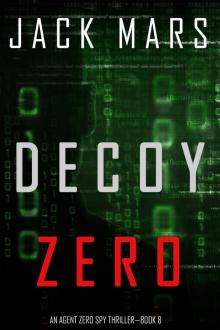 Decoy Zero
Decoy Zero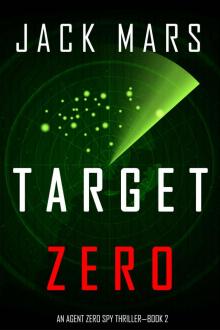 Target Zero
Target Zero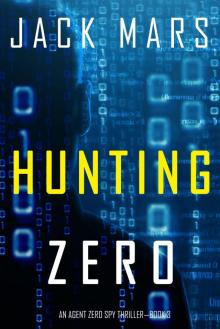 Hunting Zero
Hunting Zero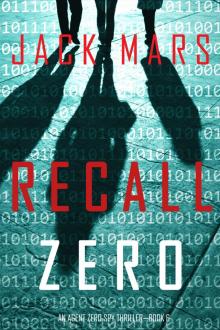 Recall Zero
Recall Zero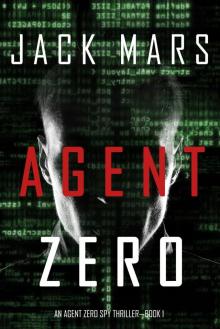 Agent Zero
Agent Zero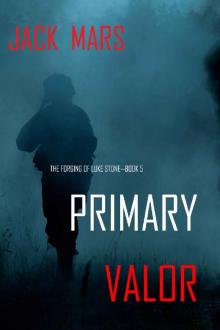 Primary Valor
Primary Valor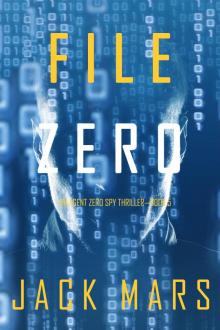 File Zero
File Zero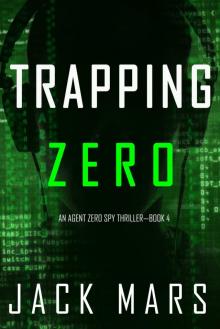 Trapping Zero
Trapping Zero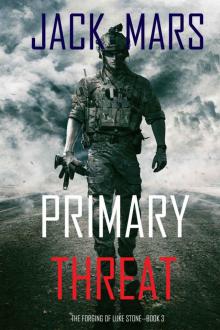 Primary Threat
Primary Threat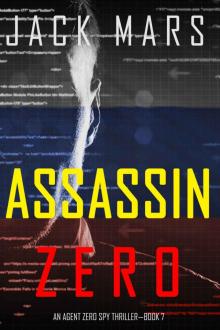 Assassin Zero
Assassin Zero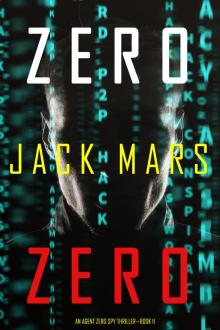 Zero Zero
Zero Zero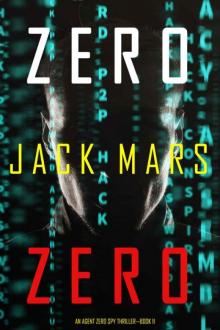 Zero Zero (An Agent Zero Spy Thriller—Book #11)
Zero Zero (An Agent Zero Spy Thriller—Book #11)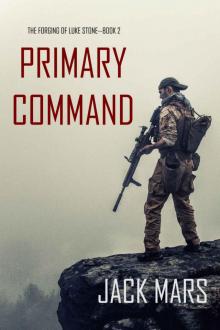 Primary Command
Primary Command![[Luke Stone 02.0] Oath of Office Read online](http://i1.bookreadfree.com/i/03/21/luke_stone_02_0_oath_of_office_preview.jpg) [Luke Stone 02.0] Oath of Office
[Luke Stone 02.0] Oath of Office House Divided
House Divided Oath of Office (a Luke Stone Thriller—Book #2)
Oath of Office (a Luke Stone Thriller—Book #2) Our Sacred Honor (A Luke Stone Thriller—Book 6)
Our Sacred Honor (A Luke Stone Thriller—Book 6)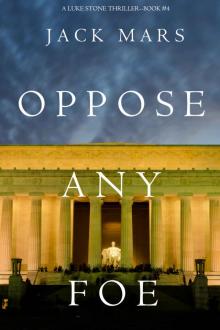 Luke Stone 04 - Oppose Any Foe
Luke Stone 04 - Oppose Any Foe Our Sacred Honor
Our Sacred Honor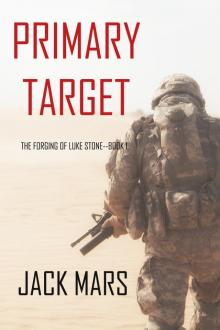 Primary Target
Primary Target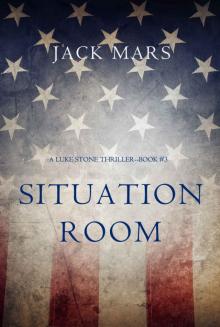 Luke Stone 03 - Situation Room
Luke Stone 03 - Situation Room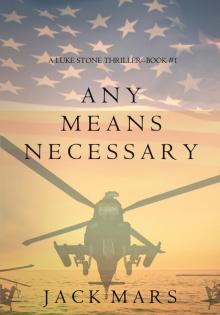 Any Means Necessary: A Luke Stone Thriller (Book 1)
Any Means Necessary: A Luke Stone Thriller (Book 1) Oath of Office
Oath of Office